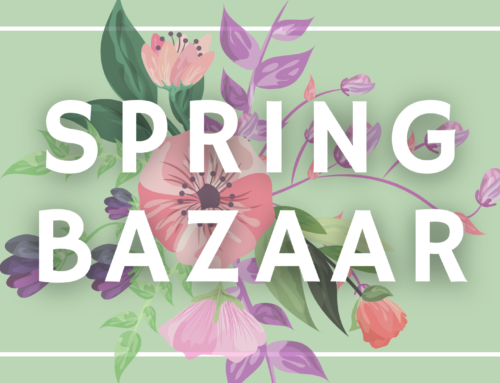When you’re a pastor, people talk to you about any number of things.
When people talk to me about their depression… they don’t usually need to talk to me about their depression. And it’s not necessarily their depression they want to talk about either. (I often feel that they bring up the depression because they are testing me to see how I will react. Perhaps it’s more accurate to say that they want to talk and they need for me to understand).
But they do want to talk.
And they do need to talk.
Many people have told me that their challenge is not just the depression or its effects, but also dealing with other people’s fear – and then their own subsequent fear of disclosure. (When people come to see me, they are usually under the care of a health professional or I strongly suggest they go see one. Doctors can zero in on a lot of things and should always be part of any plan)They need to talk about how to deal with the other people around them.
“I’m not sure what to tell them,” are words I hear a lot. Such feelings are not unfounded. Although we are making progress in dealing socially with mental health issues, from my vantage point, we have a ways to go. I hear too many such stories for it to be otherwise.
A health professional I know told me that in our desire to enlighten people about mental illness, the way it was first communicated years ago inadvertently characterized people who struggle with a mental illness as dangerous. My friend says that it has been a hard thing to shake now because the false image of being “those people” being “dangerous” is ingrained now.
I must be naive. I have never thought that depression was anything to be embarrassed about.
But then again, I’ve never been down the road of having to disclose. So I can’t say that I truly know what it feels like have have people shun you. That happened to someone I knew. When her child was diagnosed with a mental illness and had to be hospitalized, she felt isolated by friends, even in her own church. You would think that there would have been an outpouring of love. Instead people stopped talking to her, she says, because they didn’t know what to say.
When I get to that place of trust – where time invites humour to help ebb the effects of trauma and you can laugh at yourself a little – I like to say: “Tell them ‘normal’ means hanging out with people who are your kind of crazy!!!” I don’t mean to diminish their struggle. I mean to accompany them to a place where they can accept themselves as they are, even as they continue to wish that their reality were different.
But like any challenge we may face, there are parts to depression that are no laughing matter. Laughter may be the “best medicine”, but it is not a cure all. And “time” does not heal all wounds. (My health professional friend is quick to add that depression is highly treatable)
Here are TEN things that people with depression have taught me over the years.
We have a natural inclination to see things from our perspective because it helps us make sense of what’s in front of us. I have found that a safeguard against this is to ask the other person to teach me about what it is like to be them.
(1) People with depression can’t just “snap out of it”. There are people who learn to stay ahead of depression. That takes time. And patience is certainly a virtue, your patience.
(2) They don’t need you to feel sorry for them. People who are depressed want to genuinely be productive and self sufficient. Empathy –appreciating how a situation affects a person from their own perspective — is a much better choice. Let that evolve organically.
(3) Don’t suggest a book. If there was a book that could solve it, we’d know about it by now. And they’ve probably read as much or more about the subject than someone else will ever know anyways.
(4) Don’t suggest that they “change their thoughts.” You’ve heard the adage “If you need something done, give it to a busy person”? Same thing applies here. People with depression are better at changing their thoughts than most people I know, even if it doesn’t seem to show. Think for a second how much more difficult their live’s might be if they didn’t know how to change their thoughts.
(5) They’re not ashamed as much as tired/fearful of being misunderstood or judged. Best thing to do, I’ve been told, is to listen to understand. Don’t try and fix anything and don’t insist on helping unless you’re invited. Think of it as entering the most intimate parts of someone’s home. You wouldn’t just march upstairs to use the master bathroom, right?
(6) Don’t remind them to take “better care of themselves”. You are only stating the obvious of which they are likely more painfully aware than you know. And a lack of self-care is not what causes depression, it’s a symptom. Some people with depression are better at taking care of themselves than other people I know. So maybe you might ask, “How do you take care of yourself? I’d like to learn some new habits for myself”.
(7) Don’t suggest that “happiness is a choice” or “that medications are a crutch”. While my evidence is anecdotal, if happiness were truly a choice, we wouldn’t be as unhappy as we are as a society. Working with a doctor is as authentic a step to take care of oneself as I can think of. Again, listening to the other person’s opinion about improving their life is a more supportive gesture.
(8) Don’t make your story their story. Misery doesn’t really love company. Everybody needs a sense of their own self sufficiency. Being able to have our story remain uniquely ours is a big part of that. Clarify that you’ve understood someone else’s point of view before you share your own.
(9) Not everybody who suffers from depression has had something terrible happen to them. Don’t probe. Sometimes depression comes seemingly out of the blue and it can take doctors time to get that figured out. A doctor once confirmed how hard it can be to get a handle on a diagnosis if other health issues are complicating the matter.
(10) They are not weak or less intelligent. We value strength in our society, often in a very unhealthy way – often thinking that “the weak” are somehow less intelligent. By know I hope you have garnered an understanding of how strong someone with depression needs to be to face society and still remain true to themselves. The people I have spoken with are in fact some of the best mentors I have had. Some have been brilliant even. They have had a lot practice teaching others about life and it’s many paradoxes. It’s their “students” who sometimes need more work.













Connect with Carleton Memorial